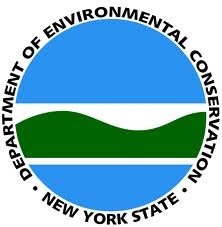Southampton, NY - May 21, 2015 - Effective at sunrise on Friday, May 22, the New York State Department of Environmental Conservation (DEC) will reopen approximately 3,600 acres of shellfish lands in the Town of Southampton. These areas were closed on May 7, after DEC's Bureau of Marine Resources detected saxitoxin, a naturally occurring marine biotoxin that causes paralytic shellfish poisoning, in shellfish in Shinnecock Bay.
The biotoxin closures for shellfish (clams, mussels and oysters) will be rescinded in most of the normally certified shellfish lands in western Shinnecock Bay. Approximately 315 acres in a cove outside the mouth of Weesuck Creek will remain closed for the harvest of shellfish.
The decision to reopen this area was based on the results of extensive testing of shellfish samples from western Shinnecock Bay. DEC's microbiology laboratory has tested more than 85 shellfish samples for biotoxin since late March, with 20 of those samples collected from Shinnecock Bay.
The prohibition on the taking of carnivorous gastropods (conch, whelk and other marine snails) that was implemented on May 7 remains in effect for all of western Shinnecock Bay lying west of the southbound lanes of the Ponquogue Bridge and east of the Post Lane Bridge in Quogue.
For more information on temporary emergency shellfish closures and maps of the affected areas, visit the DEC website. A recorded message advising harvesters of the status of temporary shellfish closures may also be heard by calling (631) 444-0480.










